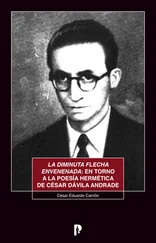It had taken all night, or the entire terrible fragment since midnight, as well as the almost entire collective drainage of endorphins, to realize that the dead who were returning were the town’s dead, its parents and grandparents, friends and relatives. Happen what may to the deceased after their final moments, they still continued to be themselves, since otherwise their demise wouldn’t have been theirs. Why hadn’t anyone thought of this sooner? Probably because they hadn’t had time to think of it, or they hadn’t thought it would be of any use. They also had the excuse that those thirsty monsters, who seemed to be guided by diabolically powered remote control, had violently expunged any familiar idea of neighbor, of fellow Pringlesian. They seemed to come from too far away. They came, however, from the Cemetery, where the living went every Sunday to bring them flowers, and, while there, to take a stroll that reignited their will to live. And, there in the Cemetery, the gravestones guaranteed that the horrendous metamorphosis of death did not alter identity, and identity was a name. If not, what good were the gravestones? Things began to fall into place, began to “coincide.” The fact that the dead coincided with their names, as did the living, was mere logic, but suddenly it seemed like a revelation. Which is why the witnesses were surprised when the name put a stop to the killer impulse and made them return to the Cemetery where they belonged. If it was true, if it worked with all of them the way it had worked with Schneider, the Russian, the cure was easy, because everybody (except me), as I already said, knew all of them. Of course they had to recognize them, which a priori did not appear to be that easy.
But it was easy. Until that moment they had seen them only as the post-human monsters that they were, but now, remembering that they were also their fellow Pringlesians and that they had been given Christian burials, the optics had changed. In minutes they would be able to find out just how much. Because they recognized them at first sight. They were surprised to recognize them, and that very surprise made the names pop out. The older women, who had initiated this method, were the ones who could say the most names, pointing to this or that skeletal ghoul, who, upon hearing its name, became obedient, and left. The men didn’t lag too far behind; some more some less, but everybody had done business with everybody else. Age helped. The young people, whose strength and agility gave them an advantage in war, had to defer to the knowledge and memories of the older people during this phase of the war.
It was as if they had opened their eyes and seen them for the first time. That was Whatshisname, this was Youknowwho, and that was so-and-so’s father who had left such-and-such widowed, the wife of that one who had died so young… And their name was the magical and infallible key that made them desist; they heard it and left, their impulse checked; it wasn’t necessary to shout at them — they heard their names no matter what; they seemed to be attuned to the sound that belonged to them. Even more so: they seemed to have been listening for it the whole time, and wondering why nobody had spoken it.
Very soon, they were descending the staircase, followed by those who were shouting their names (it wasn’t necessary but they did it anyway), repeating them just in case, even though once was enough. And outside, the party guests, now emboldened, spread out in all directions, looking for more living dead — who weren’t hard to find — so they could confront them decisively, recognize them, and name them. News spread fast. The Pringlesians came out from under their beds, and now they were the ones hunting, without sticks or stones or rifles, armed only with their knowledge of the old families and their losses.
Some may have been amazed by the infallibility of the method. But only if they hadn’t taken into account that family names were the language of the town, and that the inhabitants spoke it from the minute they learned to talk. It was as if they had been preparing for this moment their entire lives. Or it might be amazing, or seem implausible, that they would get them right each and every time. Some had been dead for a hundred years — little more than clumps of dust stuck together somehow or other. But this could be explained: family names had become so interconnected over the years that the entire population was related by blood; apparently, the dead accepted any last name that belonged to any branch of their family tree.
From the streets, where a short while before the silence had been interrupted only by shrieks of horror and snorts from the hereafter, there arose a chorus of names that reached the heavens. Everybody was shouting them through the streets, out doors and windows, from balconies, out of cars, and from bicycles. The dead marched away in silence, retracing the steps they had taken earlier. They converged on the Plaza, and from there formed one compact mass down the transverse streets that led to the road to the Cemetery.
The retreat was like that of the tide. They were taking with them all the endorphins of the town, and the following morning the Pringlesians would have to produce more, from zero. They no longer pursued them, except out of curiosity, nor did they shout their names, except for one or another that had been forgotten, the name of a family that had died out, a name some old man had to dig out of the depth of his memory and say out loud as an extra precaution. Moreover, it didn’t take any effort and they didn’t even have to dig very deep in their memories. Their everyday conversations were full of names, the town was made up of names, and that night, names had saved the town.
A few people followed them out of curiosity, but the majority preferred to watch the procession from their rooftops; those with the best views were the owners of the only three tall buildings in town, and their neighbors who’d invited themselves over. They saw a dark mass, swarming but orderly, flowing back toward the edge of town. The only incident worth noting took place when the crowd of living dead passed the Chalet de la Virgen. At that moment, the five Virgins who lived there appeared at the door, one behind the other. Nobody could explain how they had acquired the ability to move, perhaps through some kind of religious miracle; and not only that: they had also acquired light, an intense golden radiation that made them glow, and made them visible from far away. They separated from one another and joined the rear of the great march, like shepherds herding their flock. And they herded it to the end, in other words, to the Cemetery, and they entered after the last dead, and though nobody saw this, they probably made certain that everybody went back into his own and not his neighbor’s tomb.
That’s how it all ended. Except for those who were standing on the rooftops of the tallest buildings, where they could see everything, even beyond the Cemetery, all the way to the perimeter of roads that surrounded the town. On the MacAdam ellipse of highway that surrounded Pringles, unreal under the white light of the moon, two cars, driving in opposite directions, looked like toys from that far away. One was going at full speed “as if it were racing”; the other went very slowly, like a tortoise, so slowly that if some small feature in the landscape wasn’t used as a point of reference, you would think it was standing still. Those who saw the two cars took it as a sign that life carried on, and that the following day the families of Pringles would again take up their habit of going out for a spin, thereby taking up the task, difficult and easy at the same time, of recapturing their lost happiness.
The following morning I woke up depressed, even before I realized that I was depressed. Then I remembered that it was Sunday, the most difficult day for me to endure. Sunday depression is classic, and how could it not be for someone without a job, without a family, and without prospects.
Читать дальше












